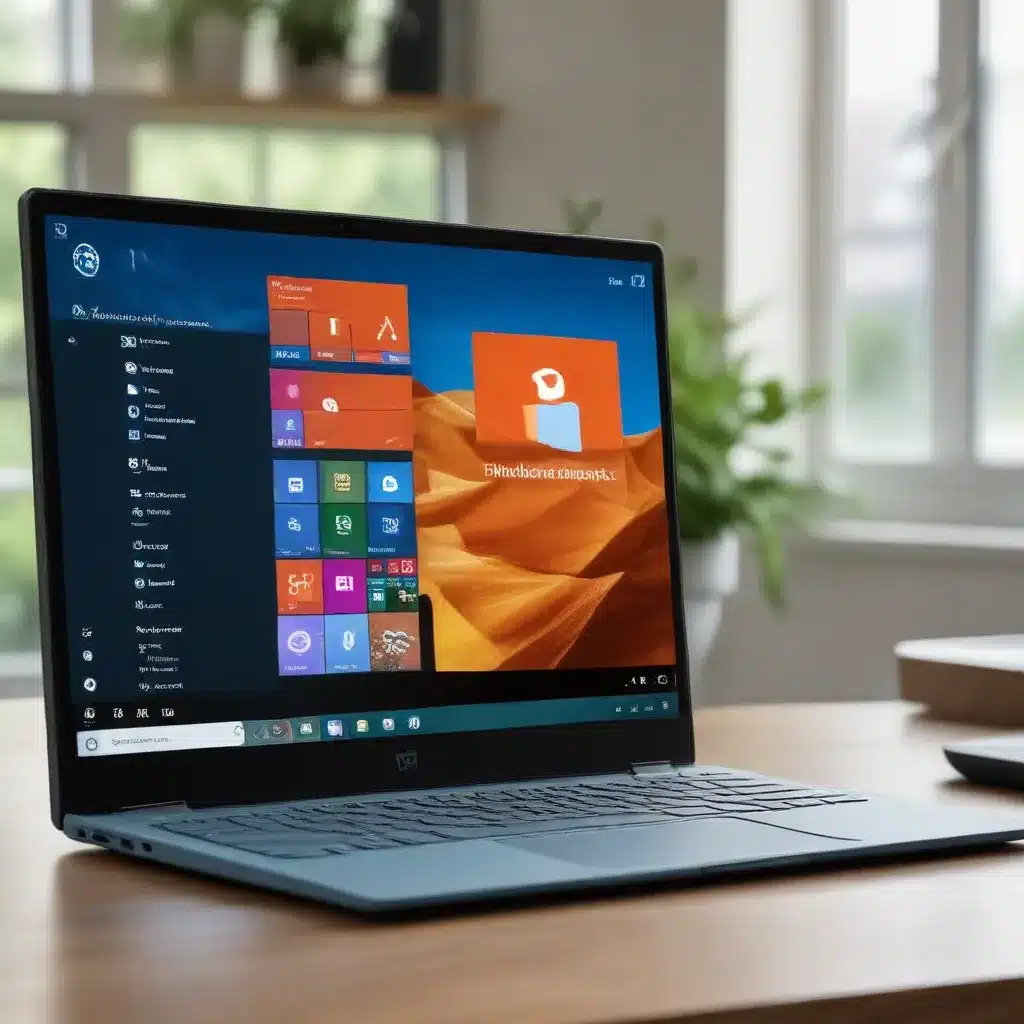
The Windows 11 Leap: Innovations and Enhancements
Windows 11, Microsoft’s latest operating system, marks a significant stride in the evolution of personal computing. This visionary leap forward sets new standards for what an operating system can be, showcasing Microsoft’s commitment to innovation and user experience.
Revamped User Interface: A Harmonious Blend
The user interface of Windows 11 is not just an update; it’s a complete transformation that revolutionizes how users interact with their PCs. This harmonious blend of form and function is designed to enhance productivity and ease of use, indicating that Microsoft values aesthetics as much as functionality.
One standout feature is the new Snap Layouts, which allow users to effortlessly organize multiple applications side by side, optimizing their workflow and reducing the time spent switching between tasks. This practical improvement exemplifies how Windows 11’s redesigned UI can significantly impact daily professional tasks.
Performance Enhancements: Speed and Efficiency
Windows 11 isn’t just about looks; it’s a powerhouse when it comes to performance. This OS has been fine-tuned to deliver speed and efficiency, ensuring your computer runs smoothly and faster, whether booting up or running complex applications.
Gaming Elevated: A Gamer’s Paradise
Windows 11 takes gaming to a new level, integrating cutting-edge technology to deliver an unmatched gaming experience. It caters to every gamer’s needs, from casual to professional, with enhancements that make it a top choice for enthusiasts.
Hybrid Work Empowered: Productivity and Collaboration
In the era of remote and hybrid work, Windows 11 emerges as a game-changer. It is designed with the modern workforce in mind, offering tools and features that enhance productivity and collaboration, making it an ideal choice for hybrid work environments.
Versatile Interaction: Embracing the Future
Windows 11 significantly advances in how users interact with their devices. The OS is more than ready for the future of computing, embracing touch, pen, and voice inputs like never before, making it a versatile choice for different types of devices and user preferences.
Navigating the Challenges of Windows 11
While Windows 11 marks a significant stride in the evolution of operating systems, it’s not without its shortcomings. These drawbacks, ranging from system requirements to user adaptability, pose real challenges and considerations for potential users.
Hardware Requirements: A Barrier to Adoption
One of the most significant barriers to adopting Windows 11 is its stringent hardware requirements. This issue exceeds mere inconvenience; it represents a fundamental shift in Microsoft’s approach to operating system upgrades, prioritizing advanced features over broad accessibility.
For many users, this means facing the tough choice of expensive hardware upgrades or missing out on the Windows 11 experience. Consider a small business owner using a fleet of computers purchased only a few years ago. The cost of upgrading all these machines to meet Windows 11’s requirements is financially burdensome and disrupts business continuity.
To mitigate this disadvantage, Microsoft could consider releasing a more inclusive version of Windows 11 with flexible hardware requirements. This version could offer core improvements to Windows 11 while omitting some advanced features requiring higher specifications, allowing more users to enjoy the benefits of the new OS without the need for costly hardware upgrades.
Compatibility Challenges: Disrupting Workflows
The transition to Windows 11 has brought its share of compatibility issues, which can be a significant hurdle for users. The shift to a new operating system often challenges compatibility with older software and hardware, ranging from minor inconveniences to major disruptions, especially for businesses and professionals reliant on specific applications.
Limited Customization: Restrictive Design Choices
Windows 11, despite its modern interface, has faced criticism for its limited customization options. This aspect can be particularly frustrating for users accustomed to personalizing their computing experience extensively. The streamlined design choices, while aesthetically pleasing, can feel restrictive to those who value a high degree of personalization.
Privacy Concerns: Emphasis on Connectivity and Data Sharing
With Windows 11’s deep integration of Microsoft services and features, privacy concerns have become more pronounced. The operating system’s settings and defaults emphasize connectivity and data sharing, which can be a point of contention for users vigilant about their digital privacy.
Learning Curve: Adapting to a New User Experience
While innovative, the redesigned user interface and new features of Windows 11 come with a learning curve. Users upgrading from older versions of Windows may find the new layout and functionality initially confusing or unintuitive. This adaptation period can be a drawback, especially for those relying on PCs for work or other critical tasks.
The Way Forward: Weighing the Pros and Cons
Windows 11 is a significant milestone, showcasing Microsoft’s dedication to innovation and enhancement of user experience. Its pros, including a revamped user interface, improved performance, and enhanced gaming capabilities, position it as a forward-thinking operating system.
However, the transition to Windows 11 is not without its challenges. The stringent hardware requirements, compatibility issues, and other noted drawbacks could be stumbling blocks for many users. Yet, the essence of Windows 11 lies in its potential to evolve and adapt—the concerns, particularly around compatibility and customization, present opportunities for future updates and modifications.
Microsoft has a history of responding to user feedback, suggesting that many of these cons could be addressed in subsequent releases. For users weighing the pros and cons, the decision to upgrade should consider not just the present state of Windows 11 but its trajectory.
As an experienced IT professional, my advice would be to carefully evaluate your specific needs and the capabilities of your hardware before making the switch to Windows 11. While the operating system offers exciting innovations, the potential drawbacks may outweigh the benefits for some users. However, as Microsoft continues to refine and improve the OS, the calculus may shift in the future, making Windows 11 a more compelling upgrade option.
If you’re interested in exploring the latest advancements in personal computing, I encourage you to visit https://itfix.org.uk/ to stay up-to-date on technology trends, computer repair tips, and IT solutions that can help you make the most of your computing experience.












